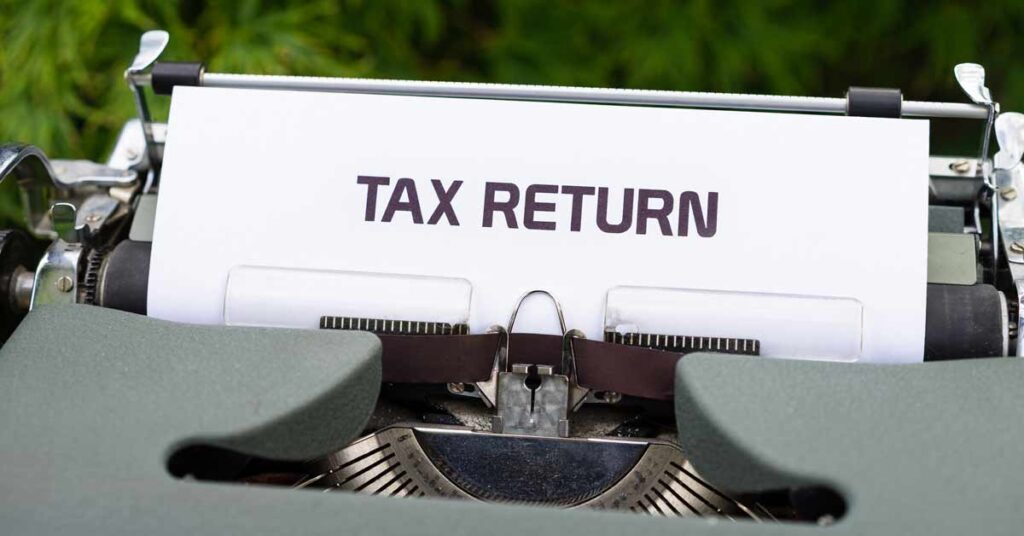As an investment property owner in Australia, you may be eligible for a variety of tax deductions to offset the expenses associated with your rental property.
However, it’s important to know what deductions you can claim and how to claim them correctly. Knowing the tax benefits that are available to you will give you the edge in creating a positively geared investment property or turn a negatively geared investment property into a profitable venture.
It’s important to note that tax laws and regulations can change over time, so it’s always best to consult a tax professional for personalised advice. The information contained here does not take into account your own situation, is general in nature and may not be up to date with tax legislation.
So please, see a tax accountant or other tax professional before you lodge your taxes to avoid making any mistakes.
In this article, we will cover the top investment property tax deductions that you do not want to miss out on.
Interest on the mortgage
The interest on your mortgage for your rental property is one of the most significant deductions you can claim. This includes any interest you pay on loans used to purchase, construct, or improve your rental property.
You can claim a tax deduction for the interest on your home loan for your investment property as a rental property expense. To claim the deduction, you will need to have records of the interest payments, such as bank statements or loan statements.
To claim the interest as a tax deduction, you need to have borrowed the money for the purpose of earning assessable income from your rental property. It is important to note that you can’t claim the interest if you borrowed the money for personal use.
“Earning assessable income” means that you are receiving income that is subject to income tax. In the context of an investment property, assessable income would refer to the rental income you receive from renting out your property. This income is reported on your tax return and is used to calculate your taxable income and the amount of tax you owe.
When claiming a deduction for the interest on your home loan, you should also be careful to accurately apportion the interest between your investment property and your personal use. If you use the property for both investment and personal use, you will only be able to claim a deduction for the portion of the interest that relates to the rental income.
It’s important to keep accurate records of the interest payments, as well as records of any other rental property expenses. You will need to provide these records to the Australian Taxation Office (ATO) when you lodge your tax return.
Depreciation of the property and assets within it
Depreciation is the decrease in value of an asset over time. As a property owner, you can claim depreciation on the building and any assets within it, such as appliances and furniture.
You can claim depreciation of the property and assets within it as a tax deduction for your investment property. This is known as “plant and equipment depreciation” and refers to the decrease in value of items used in the property over time.
To claim depreciation on your property, you need to have a “Depreciation Schedule”. It can be a good idea to have your schedule prepared by a Quantity Surveyor (who’s fees are also tax deductible!) or a Tax Depreciation specialist. This schedule itemises all the assets in the property that are depreciable, along with their effective life and their value.
To ensure that you’re eligible for the tax deduction, it’s best to double check with your accountant or tax professional before making the claim.
What are some examples of assets?
The Australian Taxation Office (ATO) has a list of effective life of assets that you can use as a guide. Once you have a schedule, you can claim the depreciation on your tax return as a deduction against your rental income.
Here are some examples of assets that can be depreciated for an investment property:
- Carpets, blinds, and curtains
- Stoves, ovens, and dishwashers
- Air conditioning units
- Hot water systems
- Built-in wardrobes
- Smoke alarms
- Security doors and screens
It’s important to note that you can only claim depreciation on assets that you own and that are used in the property to earn assessable income. Additionally, it’s also important to note that you can’t claim depreciation on items that are considered structural or integral to the building, such as walls, roofing, and foundations.
Ensure that you keep the records of all the assets and their purchase date and cost for a number of years as the ATO may ask for them at any time.
Repairs and maintenance costs
Repairs are considered to be expenses that are incurred to restore a property or an asset to its original condition. Maintenance costs can also be claimed as deductions, as long as they are not considered improvements.
In Australia, As a property owner, you’re responsible for making sure it’s in good shape for people to live in so repairs and maintenance costs for an investment property can be claimed as a tax deduction in the year the expenses are incurred.
When claiming repairs and maintenance costs, it is important to distinguish between repairs and improvements.
Sometimes things break or need fixing, like the roof leaks, or the oven stops working. These costs are called repairs. And you can get a tax break for the money you spend on repairs because the government wants to encourage people like you to keep their rental properties in good shape.
So, repairs are considered to be expenses that are incurred to restore a property or an asset to its original condition. These expenses may be claimed as a tax deduction in the year they were incurred.
Now, sometimes you might want to make changes to the property that will make it nicer or more valuable, like remodeling the kitchen or adding a new room. These changes are called Improvements, and are considered to be expenses that add value to the property, such as renovating a bathroom or adding a deck. These expenses cannot be claimed as a tax deduction in the year they were incurred.
Instead, they can be claimed as a capital works deduction over a period of time, usually 40 years.
Insurance for the property
Insurance for your rental property is a necessary expense to protect your investment, and fortunately, it is also tax-deductible.
This includes various types of insurance such as:
- Landlord insurance: This type of insurance covers the property for things like damage caused by tenants, loss of rent, and public liability.
- Building insurance: This type of insurance covers the cost of rebuilding or repairing the property in case of damage from events such as fire or storms.
- Contents insurance: This type of insurance covers the contents of the property, such as furniture and appliances, in case they are damaged or stolen.
To claim a tax deduction for your insurance, you will need to have records of the insurance payments, such as receipts or invoices and ensure that the insurance is specifically for your rental property and not for personal use.
It’s important to be mindful of the fact that you can only claim insurance for your investment property if it is incurred in earning assessable income from the property. This means that the insurance must be directly related to the rental income earned, and not for personal use.
Finally, it’s important to remember that you can’t claim a deduction for any GST included in the insurance premium.
Council rates and other property taxes
As a property owner, you are responsible for paying property-related taxes such as council rates and other taxes. Council rates are taxes that are imposed by the local government for the maintenance and upkeep of the area in which your property is located. Other property taxes include taxes imposed by the state government such as land tax.
There are other property-related taxes to be aware of in Australia. In addition to council rates and land tax, some examples include:
- Water rates: You may be responsible for paying water rates for your rental property if it is separately metered.
- Strata fees: If your property is part of a strata scheme, you may be responsible for paying strata fees which cover the costs of maintaining common areas and facilities.
- Body corporate fees: Similar to strata fees, body corporate fees cover the costs of maintaining common areas and facilities in a property complex.
- Sewerage charges: Some properties may be subject to sewerage charges for the treatment and disposal of waste water.
- Fire services levy: In some states and territories, a fire services levy is imposed on property owners to fund the provision of fire services.
- State emergency management charges: Some states impose a charge on property owners to fund emergency management services.
It’s important to be aware of any taxes or charges that may apply to your property and to factor these into your budget when considering an investment property. It important to ask for this information from the vendor or real estate agent as well to be sure you’ve got all the information. To claim a tax deduction for council rates and other property taxes, you will need to have records of the payments, and ensure that the taxes are specifically for your rental property and not for personal use.
Management fees for a property manager
Property management can be an essential service for rental property owners, and the good news is that management fees for a property manager are tax-deductible in Australia. These fees are considered an expense incurred in earning assessable income from your rental property and are directly related to the rental income earned.
You can only claim management fees for your rental property when the property is available for rent because the fees incurred are only tax-deductible if they are directly related to earning assessable income from the property. The property must be available for rent to generate rental income, which is the income that is subject to income tax. Management fees for a property manager are incurred as a cost of maintaining and managing the property, and are only tax-deductible if they are incurred to generate assessable income.
If the property is not available for rent, then there is no assessable income generated, and the management fees are not tax-deductible. For example, if the property is vacant, under renovation, or being used for personal use, you can’t claim management fees as a tax deduction. It’s important to note that while you can’t claim the management fees during the time the property is not available for rent, you can still claim them once the property is available for rent again.
Legal and accounting fees related to the property
Legal and accounting fees related to your rental property may also be tax-deductible. These fees are incurred as a cost of maintaining and managing the property and are directly related to the rental income earned.
Some examples of legal and accounting fees that can be claimed as tax deductions for your rental property in Australia include:
- Legal fees for drawing up a lease agreement or for eviction proceedings
- Legal fees for disputes with tenants
- Legal fees for advice on compliance with landlord-tenant laws
- Accounting fees for preparing tax returns related to the property
- Accounting fees for advice on tax implications of owning a rental property
- Legal fees for transferring ownership of the property
- Legal fees for any disputes with the local council, Body corporate or Strata
- Legal fees for disputes with neighbours or other third parties
It’s important to note that these are just a few examples and that you may be able to claim any legal or accounting fee that is related to the property and incurred in earning assessable income. It’s always a good idea to consult a tax professional first to ensure their services are tax deductible for you.
Travel expenses related to inspecting or maintaining the property
It’s important to note that the ATO has made changes to the travel expenses allowances for tax deduction, and you must either be an exempt entity or specifically in the business of being a landlord. Make sure you speak with your tax professional before claiming travel.
Travel expenses relating to your rental property can also be tax-deductible in Australia. These expenses are incurred as a cost of maintaining and managing the property and are directly related to the rental income earned. Examples of travel expenses that can be claimed include the cost of traveling to inspect the property, collecting rent, and attending to repairs or maintenance.
To claim a tax deduction for travel expenses, you will need to have records of the payments, such as receipts or invoices, and ensure that the expenses are specifically for your rental property and not for personal use.
Pest control and treatment expenses
Pest control and treatment expenses for your rental property are also tax-deductible. These expenses are incurred as a cost of maintaining and managing the property and are directly related to the rental income earned.
Pest control and treatment expenses include costs associated with preventing and eliminating pests such as rodents, insects, and termites from the property. You can only claim pest control and treatment expenses if they are incurred while the property is available for rent and also you can’t claim a deduction for any GST included in the pest control and treatment expenses.
Advertising for tenants
Advertising for tenants is a necessary expense for rental property owners, and fortunately, it is also tax-deductible. These expenses are incurred as a cost of maintaining and managing the property and are directly related to the rental income earned.
Advertising expenses can include costs associated with placing classified ads, listing the property on rental websites, and costs associated with open house inspections.
Water charges
Water charges are the costs of supplying water to the property and can include charges for water usage, sewerage, and stormwater. these expenses are incurred as a cost of maintaining and managing the property and are directly related to the rental income earned.
Cleaning and gardening expenses
Cleaning expenses can include costs associated with regular cleaning and vacate cleaning and gardening expenses include costs associated with maintaining the lawns and gardens of the property.
The cost of upkeep and replacement of plants and structures in a rental property can be claimed as an immediate deduction, however, expenses related to new plants or changes that increase the value of the property are considered as “improvements” and must be depreciated over a period of time.
It’s always important to distinguish between repairs and improvements when looking at gardening and cleaning and to ensure that what you are claiming is able to be claimed properly.
Strata fees
Strata fees for an investment property are tax-deductible as they are considered an expense incurred in earning assessable income from your rental property.
These are costs associated with the ownership of a property in a strata scheme, such as a unit or apartment complex, and include expenses such as building insurance, maintenance of common areas, and management fees.
You should always be aware that if your strata fees include the costs of maintenance and gardening then you won’t be able to claim those as a separate deduction.
Capital works deductions
Capital works refer to construction or structural improvements made to a property. These are works that add value to the property, increase its useful life and are capital in nature.
Examples of capital works include building extensions, constructing a garage or carport, installing a new roof, and adding a swimming pool.
Capital works are generally not immediately tax-deductible, but are depreciated over a period of time. The Australian Taxation Office (ATO) has a set of guidelines for determining the effective life of capital works, which is used to calculate the amount of depreciation that can be claimed each year. The effective life of a capital works can vary depending on the type of construction and the materials used.
For instance, you can claim capital works deductions for the construction of a new building or for substantial renovations, additions, or alterations to an existing building. The capital works deductions can be claimed over a period of time, called the “effective life” of the building, as determined by the ATO. This can vary from 25-40 years for a residential building and from 15-20 years for a commercial building.
To be safe, it’s always important to engage your tax professional or accountant before you get started on the works to ensure that what you are doing fits in with your tax planning.
Negative gearing or losses incurred from the rental property
A loss on an investment property occurs when the expenses associated with the property exceed the rental income earned. This can happen for a number of reasons, such as high vacancy rates, low rental income, or high expenses associated with maintenance and repairs.
The loss can be used to offset other income and reduce the overall tax liability of the taxpayer. This is often referred to as a strategy called Negative Gearing.
What’s negative gearing?
Negative gearing is a strategy used by investors in which the expenses associated with an investment property, such as interest on a mortgage or loan, council rates, insurance, repairs and maintenance, and property management fees, exceed the rental income earned from the property. The resulting loss can be used to offset other income and reduce the overall tax liability of the taxpayer.
In other words, it is a way of investing in property where the rental income received is less than the expenses associated with owning and maintaining the property, resulting in a net loss. The investor can then claim the loss as a tax deduction against their other income, such as wages or salary.
The idea behind negative gearing is that over time, the value of the property will increase, and the investor will make a profit when they eventually sell the property. This can also be used to reduce the overall tax liability by offsetting the loss against other income.
However, the negative gearing strategy is not without risks and may be a double edged sword. It relies on the assumption that the property’s value will increase and that the investor will be able to sell the property at a profit.
Summary of expenses claim time
Many of the most common deductions explained above may be claimed at different times. Some are immediately deductible, some may only be claimed over several years.
Immediately deductible rental property expenses
Some examples of immediately deductible expenses include:
- Agent fees
- Advertising expenses
- Bookkeeping and legal costs
- Insurance
- Pest control
- Property improvement, maintenance and repair expenses
- Property investment seminars or courses
- Rates and taxes
- Council rates
- Land tax
- Strata fees
Claimed over several years
Some examples of expenses to be claimed over several years include:
- Borrowing expenses
- Depreciation deductions
- Interest on your home loan
- Negative gearing
It’s important to keep accurate records of your expenses, so you can claim the deductions you’re entitled to. By taking advantage of all the available deductions, you can reduce your tax bill, increase your investment property’s profitability and ideally avoid some of the more common mistakes that people make with tax returns.
If you are looking for a guide directly from the ATO, they have a great resource right here about Rental Properties and some more common examples.
NOTE: This article contains general information, but should not be regarded as tax advice. Please see a tax professional if you’d like advice about your specific situation.







